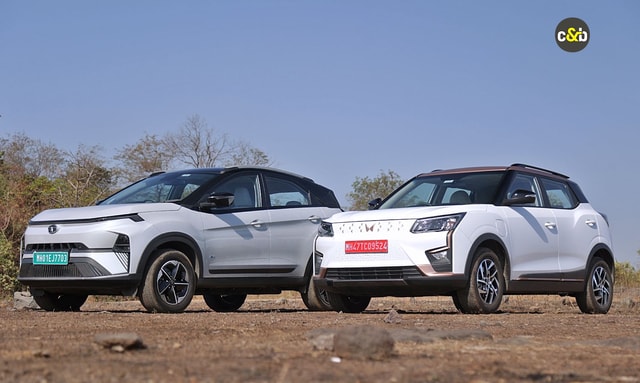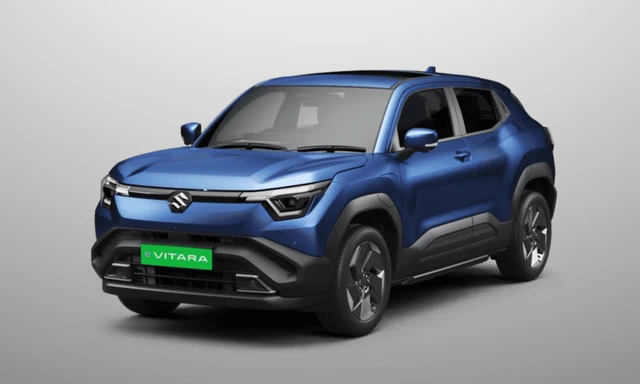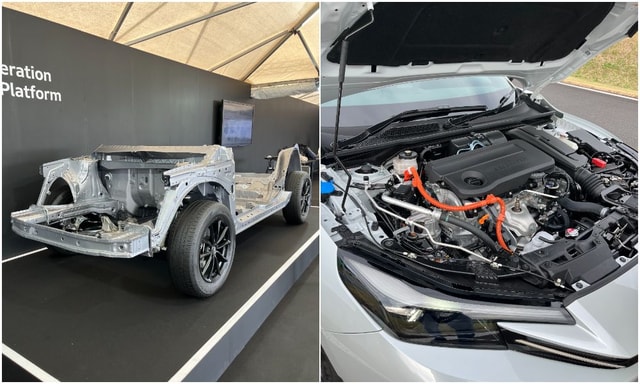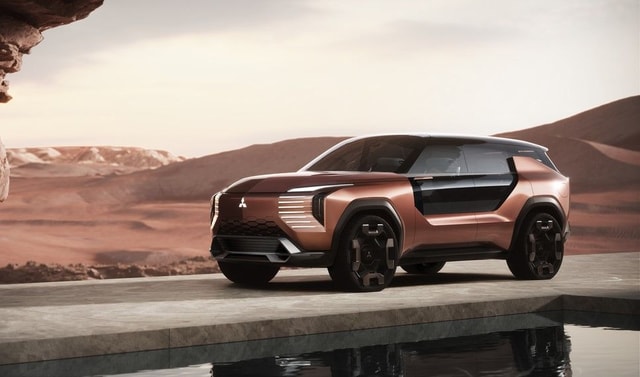Electric Cars in India
- Page - 1
About Electric Cars
What are Electric Cars?
Electric cars, often referred to as EVs (Electric Vehicles), are revolutionizing the way we think about transportation, especially in India. Unlike traditional internal combustion engine vehicles that rely on petrol, diesel or CNG; electric cars are propelled by electric motors, using energy stored in rechargeable batteries.
The Inception of electric cars dates back to the early 19th century, but their relevance has taken a quantum leap in the modern era, marked by technological advancement and a growing concern for environmental sustainability. In India, the interest in electric cars has been ignited by both governmental support and a burgeoning market for eco-friendly options.
Electric cars have become a symbol of innovation, change, and commitment to environmental responsibility. The push towards electrification is not only about a new mode of transportation but also represents a philosophical shift in how we perceive mobility.
The beauty of electric cars lies in their simplicity and efficiency. By converting stored electrical energy directly into motion, they eliminate the need for complex engines, exhaust systems, and other components associated with traditional vehicles. The result is a clean, quiet, and efficient mode of transportation that is increasingly becoming the choice for the future.
How does Electric Vehicles work?
The operation of an electric car is rooted in a simple yet powerful concept: the conversion of stored electrical energy into mechanical motion. But how does this work in practice? Let’s break it down.
Battery:
At the heart of an electric car is its battery, typically a lithium-ion pack, that stores the electrical energy. With the growing demand for EVs in India, companies are investing in battery technology, but scaling up lithium production remains a challenge.
Electric Motor:
The stored energy in the battery is converted into kinetic energy by the electric motor, which drives the wheels. Unlike traditional engines, electric motors are remarkably efficient, converting more energy into motion and less into heat.
Regenerative Braking:
One unique aspect of electric cars is regenerative braking, which harnesses energy during braking and feeds it back into the battery. This not only enhances efficiency but also prolongs battery life.
Charging Infrastructure:
In India, charging infrastructure is evolving rapidly. While there are challenges in developing adequate charging stations across the country, the government is setting up facilities at over 22,000 fuel stations and highways by 2024.
Controller:
The driver’s commands, such as acceleration and braking, are managed by a controller that determines how much electricity the motor needs. It’s a seamless process that ensures smooth and responsive driving.
Emissions:
Since electric cars rely solely on electricity, they produce zero tailpipe emissions. However, the source of electricity should be considered. With much of India’s electricity still coming from coal, efforts are being made to explore alternative clean energy sources.
Maintenance:
Simplified mechanics mean less maintenance. Without complex engines, exhaust systems, or transmissions, electric cars typically require fewer repairs and upkeep, making them a cost-effective choice in the long run.
Electric cars symbolize a harmonious blend of innovation, efficiency, and sustainability. As India embarks on a path to increase the adoption of EVs, understanding their functionality is key to appreciating their potential impact on both the environment and the economy.
Types of Electric Cars
The world of electric cars is as diverse as it is innovative. In India, where the EV market is burgeoning, various types of electric cars cater to different needs and preferences. Understanding these types can help potential buyers make informed decisions. Here are the main categories:
Battery Electric Vehicles (BEVs):
BEVs are purely electric, with no gasoline engine. They rely entirely on a battery to power an electric motor. In most cases BEVs have a standard build that revolves around a battery pack that is usually placed under the vehicle’s floorboard, and a magnetic motor. The motor usually tends to be present in the front, where the engine usually is in internal combustion engine cars.
Hybrid Electric Vehicles (HEVs):
HEVs combine an internal combustion engine with an electric motor, enhancing fuel efficiency. A HEV may provide a significant bump in range when compared to internal combustion engine cars. These numbers range from 20-25 kilometers per liter.
Plug-in Hybrid Electric Vehicles (PHEVs):
PHEVs are similar to HEVs but have a larger battery that need to be charged from an external source. These types of cars provide more range when compared to HEVs and also have the ability to run completely on electric power for a short range.
Upcoming Innovations:
The Indian EV landscape is rapidly evolving, and innovative models like the upcoming (already launched) Tata Nexon EV are a testament to the market’s growth and potential.
Each type of electric car offers unique features and benefits. As the Indian government pushes for local manufacturing and introduces measures like battery swapping, the diversity of options is likely to grow. By understanding the types of electric cars, potential buyers can align their choices with their needs, preferences, and commitment to environmental sustainability.
Advantages & Disadvantages of Electric Cars
Advantages:
Environmental Benefits: Electric cars produce zero tailpipe emissions, contributing to cleaner air and reduced greenhouse gases. This is particularly appealing in India, where air pollution is a significant concern.
Energy Efficiency: Electric cars convert about 59%–62% of the electrical energy to power at the wheels, making them more energy-efficient than conventional vehicles.
Cost-Effective Operation: Despite higher upfront costs, electric cars are often cheaper to maintain and operate, due to fewer moving parts and reduced fuel expenses.
Government Support: With ambitious targets and policies like NEMMP and FAME, the Indian government is actively supporting the EV movement, offering incentives and reducing the overall cost for consumers.
Noise Reduction: Electric cars are quieter, contributing to noise pollution reduction, enhancing urban living quality.
Disadvantages:
Charging Infrastructure: The lack of widespread charging stations is a significant hurdle, especially in non-metro cities in India.
Upfront Costs: The initial purchase price can be steep for many consumers, although government incentives and increasing competition may offset this.
Range Anxiety: Limited driving range and long charging times can cause anxiety among potential buyers, particularly in areas where charging infrastructure is underdeveloped.
Dependency on Coal: Since much of India’s electricity comes from coal, the shift to electric vehicles must be accompanied by a shift towards cleaner energy sources to realize full environmental benefits.
Fragmented Market: As observed in India, the EV market can be fragmented, and a lack of formal infrastructure for used vehicles creates additional challenges.
Why Electric cars?
Electric cars are no longer just a technological novelty; they are emerging as a vital part of the automotive future, especially in India. Here’s why going electric is the direction forward:
Sustainable Development:
With increasing awareness about climate change and environmental degradation, electric cars offer a path to sustainable development. By utilizing clean energy and reducing emissions, they align with global efforts to create a greener future.
Economic Growth:
The Indian EV market witnessed a rapid growth with 1,334,385 EVs on the road as of July 2022. The shift towards EVs is not merely an environmental statement but an economic opportunity, expected to create 5 crore new jobs in various sectors.
Government Alignment:
India’s government has shown remarkable support for the electric transition. Ambitious targets, supportive policies like NEMMP and FAME, and various financial incentives showcase a strong commitment to foster the EV ecosystem.
Diverse Options:
From affordable models like MG Comet EV to luxury options from brands like Porsche and Audi, the electric car segment in India caters to various tastes and budgets. Upcoming models like Tata Altroz EV further promise exciting innovations.
Global Trend Alignment:
By embracing electric, India aligns with global trends and learns from successful EV implementations in countries like China, the EU, and the USA. It sets a stage for technological innovation and global competitiveness.
Health and Quality of Life:
The reduction in air and noise pollution associated with electric cars has direct implications for public health and the quality of urban living. It is a step towards more livable cities and healthier lifestyles.
Energy Independence:
Electric cars can contribute to reducing India’s dependency on oil imports, a strategic benefit in the context of fluctuating global oil prices and national energy security.
Consumer Empowerment:
With choices ranging from pure electric to hybrid options, consumers are empowered to choose according to their preferences and needs, making electric cars an increasingly attractive option.
Technological Leadership:
Embracing electric vehicles paves the way for India to become a hub for technological innovation and leadership in the automotive industry, with significant opportunities for research, development, and manufacturing.
Pricing of Electric Cars
Purchasing an electric car in India has become an increasingly feasible option thanks to a broad spectrum of pricing that caters to various economic segments. The electric car market in India offers both budget-friendly and premium luxury options:
Affordable Range:
For those looking to make an economical entry into the world of electric cars, models like MG Comet EV (₹7.98 Lakh) and Tata Tiago EV (₹8.69 Lakh) provide affordability without compromising on quality.
Mid-Range Options:
Vehicles like the Tata Nexon EV Max (₹16.49 Lakh) are appealing to those seeking a balance of price and features. These models offer a robust set of amenities at a moderate price point.
Premium and Luxury Segment: For car enthusiasts desiring high-end luxury, brands like Volvo, Mercedes-Benz, Audi, and BMW offer models that range up to ₹1.95 Crore. These electric cars provide top-notch technology, comfort, and style.Upcoming Models:
Exciting new models are on the horizon, such as the Tata Nexon EV, estimated to be priced between ₹14.00 - ₹18.00 Lakh. Such future offerings add to the dynamic nature of the electric car market in India.
Government Support and Incentives:
Pricing is further influenced by the Indian government’s supportive policies, including subsidies and tax incentives through schemes like FAME. These initiatives make electric cars more accessible and appealing to a broader consumer base.
Total Cost of Ownership:
While considering the pricing, it’s vital to understand the total cost of ownership. Electric cars often provide savings in terms of fuel and maintenance, which may offset the initial purchase price over time.
Financing Options:
Various financing options, including loans and leases, are available to suit different purchasing preferences, providing flexibility in payment.
Hybrid Cars:
Additionally, the Indian market also provides hybrid options like Maruti Suzuki Invicto and Toyota Urban Cruiser Hyryder, offering an alternative for those seeking a blend of electric and traditional fuel systems.
The pricing landscape of electric cars in India is as varied as it is promising. With options ranging from economical to premium, coupled with governmental support, the entry into the world of electric mobility is within reach for many Indian consumers. By being aware of the different price points and understanding the long-term cost benefits, buyers can find an electric car that fits their budget and preferences.
Future of EV in India
India stands at a pivotal moment in the journey towards sustainable mobility. With an ambitious vision and robust governmental support, the nation is poised to become a leader in the Electric Vehicle (EV) revolution. Here’s a glance into the promising future of electric cars in India:
Market Growth & Potential:
The Indian EV market, especially in the car segment, is expected to reach around ₹475 billion by 2025. The growing interest in electric cars, supported by a diverse price range from ₹7.98 Lakh to ₹1.95 Crore, ensures accessibility across different economic levels.
Government Initiatives & Support:
India’s government has set ambitious targets and policies like the National Electric Mobility Mission Plan (NEMMP) and the Faster Adoption and Manufacturing of (Hybrid and) Electric Vehicles (FAME) scheme. These efforts are focused on incentivizing local manufacturing and promoting green energy.
Challenges to Overcome:
While the future seems promising, there are challenges to be addressed, including high upfront costs, inadequate charging infrastructure, mineral shortages, and power supply issues. Collaboration between the public and private sectors will be very important in overcoming these challenges.
Emphasis on Local Manufacturing:
The push for local manufacturing, supported by policies like battery swapping, reflects the strategic approach to making India self-reliant in EV technology.
Innovation & Technology Advancements:
Continuous innovation and technological advancements in battery technology, charging infrastructure, and vehicle design will drive the future of electric cars in India.
Environmental Benefits:
The shift towards EVs is aligned with India’s commitment to reducing air and noise pollution, contributing to a cleaner environment and global climate goals.
Social & Economic Opportunities:
The electric car revolution is more than a technological shift; it’s a social transformation, expected to create five crore new jobs and offering opportunities across various sectors.
Learning from Global Success:
By adopting best practices from countries like China, the EU, and the USA, India can accelerate its growth in the EV sector.
The road to an electric future in India is filled with possibilities and challenges. With a strategic approach, collaboration, and focus on innovation, India’s electric car market is set for substantial growth in the coming decade. However, addressing the existing challenges will be key to realizing this potential.
Myths around Electric Cars
Electric cars are an exciting part of our future, but there are still many myths surrounding them. Let’s debunk these myths with truths:
Myth: Electric cars have limited driving range. – Any automotive that requires a form of power to run, has a limit to its range. The question seems to be moot.
Truth: With advancements in battery technology, many electric cars now offer impressive ranges, accommodating most daily driving needs.
Myth: It takes a long time to charge an electric car.Truth: The development of fast-charging stations is making charging as quick and convenient as refueling a traditional vehicle.
Myth: Electric cars are too expensive.
Truth: Government incentives, lower running costs, and an expanding range of affordable options are making electric cars more financially accessible.
Myth: Battery production invalidates the environmental benefits of electric cars.Truth: Life cycle analyses show that electric cars generally have a lower environmental footprint compared to conventional vehicles, even considering battery manufacturing.
Myth: Electric cars lack power and performance.Truth: Many electric models provide instant torque and high performance, often outperforming their gasoline counterparts.
Myth: Dependency on coal power negates environmental benefits.Truth: India’s push towards alternative energy sources and renewable energy charging options is reducing the dependence on coal.
Myth: Electric cars are a temporary trend.
Truth: The global shift towards sustainability and the commitment of major automobile manufacturers indicate that electric cars are a significant part of the future mobility landscape.
Myth: Electric cars are unsafe in accidents.
Truth: Stringent safety standards and continuous improvements in technology ensure that electric cars meet or exceed the safety levels of traditional vehicles.
Understanding these myths and truths is vital in embracing electric cars with confidence and excitement. As the Indian market continues to grow, dispelling these misconceptions will ensure that electric cars become a central part of India’s transportation future.
Useful Questions & Answers on Electric Cars
Q: What is the range of an average electric car in India?
A: The range of electric cars can vary significantly, but many models available in India offer a range between 200 to 400 kilometers on a full charge. Technology is continuously improving, and longer ranges are becoming more common.
Q: What’s the time taken to charge an electric car?
A: Charging times can vary based on the charger’s power level and the car’s battery. Typical home chargers might take 6-8 hours for a full charge, while fast-charging stations can charge up to 80% in around 30 minutes.
Q: Are electric cars more expensive than traditional cars?
A: While the upfront cost might be higher for some electric cars, government incentives and lower operating costs often make them a cost-effective choice in the long run. There are also electric cars available in various price ranges from ₹7.98 Lakh to ₹1.95 Crore.
Q: Is the charging infrastructure sufficient in India?
A: While the charging infrastructure is growing, it remains a challenge in some areas. The Indian government and private entities are investing in expanding charging facilities, and innovative solutions like battery swapping are being explored.
Q: What about the environmental impact of battery manufacturing?
A: Although battery production has environmental implications, the overall life cycle of an electric car is generally more eco-friendly than a gasoline vehicle. Efforts are also being made to reduce the environmental impact of battery production.
Q: Can I find an electric car that fits my budget and preferences?
A: Absolutely! The Indian market is flourishing with electric cars, ranging from budget-friendly models like MG Comet EV to luxury brands like Jaguar and Audi. There are options to suit various needs and preferences.
Q: How does the Indian government support electric vehicles?
A: The Indian government has implemented policies like the National Electric Mobility Mission Plan (NEMMP) and the Faster Adoption and Manufacturing of (Hybrid and) Electric Vehicles (FAME) scheme. These include financial incentives and targets to promote EV adoption.
Key Highlights of Electric Cars
Popular Models Tata Tiago EV , Kia EV6 , Tata Nexon EV , Tata Tigor EV and Hyundai Ioniq 5 Latest Launches Mahindra XUV 3XO EV , Mahindra XEV 9S and Porsche Cayenne Electric Most Expensive Rolls-Royce Spectre (Rs. 8.71 - 11.04 Crore) Affordable Model MG Comet EV (Rs. 7.5 - 10 Lakh) Upcoming Model Mahindra XUV900 (Jan 2026) , Volvo EX 60 (Jan 2026) , Skoda New Kushaq 2026 (Jan 2026) , MG Majestor (Feb 2026) and Hyundai New i20 (Feb 2026) Fuel Type Electric
Latest Reviews on Electric Cars
 Shams Raza Naqvi | Aug 18, 2025Volvo EX30 Review: Baby Electric SUV Is Your Personal GadgetVolvo will soon have a new entry level model in India named the EX30. The SUV has many firsts when it comes to tech and features, and we've driven it9 mins read
Shams Raza Naqvi | Aug 18, 2025Volvo EX30 Review: Baby Electric SUV Is Your Personal GadgetVolvo will soon have a new entry level model in India named the EX30. The SUV has many firsts when it comes to tech and features, and we've driven it9 mins read Girish Karkera | Jun 10, 2025VinFast VF6 Plus FWD First Drive: Jack Of All TradesSecond on the India agenda for VinFast is a compact SUV that could well appeal to those looking at great value with an all-rounder EV9 mins read
Girish Karkera | Jun 10, 2025VinFast VF6 Plus FWD First Drive: Jack Of All TradesSecond on the India agenda for VinFast is a compact SUV that could well appeal to those looking at great value with an all-rounder EV9 mins read Bilal Firfiray | Dec 21, 2024BMW i5 M60 Review: The Ultimate SleeperDoes a 600-horsepower electric sedan sound like the ultimate driving machine? Then the i5 M60 is here to blow your mind!6 mins read
Bilal Firfiray | Dec 21, 2024BMW i5 M60 Review: The Ultimate SleeperDoes a 600-horsepower electric sedan sound like the ultimate driving machine? Then the i5 M60 is here to blow your mind!6 mins read Seshan Vijayraghvan | Nov 29, 2024Mahindra XEV 9e First Drive Review: A Star Is Born!The Mahindra XEV 9e is a born electric vehicle that has the potential to be a game changer for Mahindra.10 mins read
Seshan Vijayraghvan | Nov 29, 2024Mahindra XEV 9e First Drive Review: A Star Is Born!The Mahindra XEV 9e is a born electric vehicle that has the potential to be a game changer for Mahindra.10 mins read Girish Karkera | Jul 8, 2024First Drive: 2024 Mercedes-Benz EQA 250+With the electric equivalent of its entry-level GLA SUV, Indian luxury car customers now have a three-pointed star option in the Rs 60-70 lakh segment10 mins read
Girish Karkera | Jul 8, 2024First Drive: 2024 Mercedes-Benz EQA 250+With the electric equivalent of its entry-level GLA SUV, Indian luxury car customers now have a three-pointed star option in the Rs 60-70 lakh segment10 mins read Seshan Vijayraghvan | Mar 12, 2024Comparison Review: Mahindra XUV400 vs Tata Nexon EV – Which SUV Wins The 2024 Battle?The Tata Nexon EV has undergone a major facelift and is now equipped with improved looks, more features, and smarter tech. At the same time, the 2024 Mahindra XUV400 too gets a bunch of upgrades now.14 mins read
Seshan Vijayraghvan | Mar 12, 2024Comparison Review: Mahindra XUV400 vs Tata Nexon EV – Which SUV Wins The 2024 Battle?The Tata Nexon EV has undergone a major facelift and is now equipped with improved looks, more features, and smarter tech. At the same time, the 2024 Mahindra XUV400 too gets a bunch of upgrades now.14 mins read Shams Raza Naqvi | Jan 27, 2024Hyundai IONIQ5 N Review: Is This Really An EV?The Hyundai IONIQ5 N is the more powerful, performance-oriented sibling of the IONIQ 5 EV that is sold in the Indian market. The car made its global debut recently and we were in Seoul, South Korea to sample it.1 min read
Shams Raza Naqvi | Jan 27, 2024Hyundai IONIQ5 N Review: Is This Really An EV?The Hyundai IONIQ5 N is the more powerful, performance-oriented sibling of the IONIQ 5 EV that is sold in the Indian market. The car made its global debut recently and we were in Seoul, South Korea to sample it.1 min read Vikas Yogi | Sep 22, 2014An Electric Car Built by Students Sets A New Land Speed RecordAn ultralight electric car, built by a US based university, has set a new land speed record in its class by surpassing the previous mark by nearly 80Km/h.1 min read
Vikas Yogi | Sep 22, 2014An Electric Car Built by Students Sets A New Land Speed RecordAn ultralight electric car, built by a US based university, has set a new land speed record in its class by surpassing the previous mark by nearly 80Km/h.1 min read
Trending Searches
 Mahindra XUV900* Ex-Showroom₹ 20 - 30 Lakh
Mahindra XUV900* Ex-Showroom₹ 20 - 30 Lakh
 Skoda New Kushaq 2026* Ex-Showroom₹ 11 - 19 Lakh
Skoda New Kushaq 2026* Ex-Showroom₹ 11 - 19 Lakh






Latest News on Electric Cars
 car&bike Team | Jan 15, 2026Mercedes-Benz EQS SUV Gets A Celebration Edition For 2026, Prices start at Rs. 1.34 CroreThe new celebration edition will be available with both the EQS 450 and the EQS 580 versions of the SUV.1 min read
car&bike Team | Jan 15, 2026Mercedes-Benz EQS SUV Gets A Celebration Edition For 2026, Prices start at Rs. 1.34 CroreThe new celebration edition will be available with both the EQS 450 and the EQS 580 versions of the SUV.1 min read car&bike Team | Jan 5, 2026JSW MG Motor India Sells 46,735 Windsor EVs In CY2025; EV Sales Up By 111%The carmaker closed CY2025 with overall growth of 19 per cent, while its EV sales grew by 111 per cent compared to CY2024.2 mins read
car&bike Team | Jan 5, 2026JSW MG Motor India Sells 46,735 Windsor EVs In CY2025; EV Sales Up By 111%The carmaker closed CY2025 with overall growth of 19 per cent, while its EV sales grew by 111 per cent compared to CY2024.2 mins read car&bike Team | Dec 30, 2025VinFast's V-Green Partners With Hindustan Petroleum To Setup EV Charging StationsV-Green is owned by Pham Nhat Vuong, Chairman of Vingroup Corporation and founder of VinFast.1 min read
car&bike Team | Dec 30, 2025VinFast's V-Green Partners With Hindustan Petroleum To Setup EV Charging StationsV-Green is owned by Pham Nhat Vuong, Chairman of Vingroup Corporation and founder of VinFast.1 min read car&bike Team | Dec 2, 2025India-Spec Maruti Suzuki e Vitara To Be Unveiled Today: All You Need To KnowThe e Vitara is the carmaker’s first shot in the electric vehicle segment, and here is all you need to know about it.4 mins read
car&bike Team | Dec 2, 2025India-Spec Maruti Suzuki e Vitara To Be Unveiled Today: All You Need To KnowThe e Vitara is the carmaker’s first shot in the electric vehicle segment, and here is all you need to know about it.4 mins read car&bike Team | Nov 10, 2025BRANDED CONTENT: Mahindra XEV 9S -- The Next Big Step in Electric SUVsThe country’s first seven-seater electric origin SUV is designed to deliver the size, comfort, and presence expected from a full-size Mahindra.1 min read
car&bike Team | Nov 10, 2025BRANDED CONTENT: Mahindra XEV 9S -- The Next Big Step in Electric SUVsThe country’s first seven-seater electric origin SUV is designed to deliver the size, comfort, and presence expected from a full-size Mahindra.1 min read Girish Karkera | Nov 6, 2025Honda Showcases New Hybrid And EV Technologies For Models Due By 2030At a recently conducted tech workshop, Honda revealed a new platform for midsize cars, as well as a new-age hybrid system for its bigger models, both aimed at boosting performance and efficiency.1 min read
Girish Karkera | Nov 6, 2025Honda Showcases New Hybrid And EV Technologies For Models Due By 2030At a recently conducted tech workshop, Honda revealed a new platform for midsize cars, as well as a new-age hybrid system for its bigger models, both aimed at boosting performance and efficiency.1 min read Bilal Firfiray | Oct 29, 2025Japan Mobility Show 2025: Mitsubishi Elevance Concept Could Be The Future PajeroHas a plug-in hybrid powertrain, has S-AWC AWD, has suicidal doors, and has an AI copilot1 min read
Bilal Firfiray | Oct 29, 2025Japan Mobility Show 2025: Mitsubishi Elevance Concept Could Be The Future PajeroHas a plug-in hybrid powertrain, has S-AWC AWD, has suicidal doors, and has an AI copilot1 min read Amaan Ahmed | Oct 29, 2025Japan Mobility Show 2025: Lexus LS 6-Wheel Van Concept Previews Future Of Luxury MPVsIn Lexus' eyes, sedans are fighting a 'losing battle with SUVs', which is why the LS name has been granted to one of the most shocking new concepts -- a six-wheeled van -- on display at this year's Japan Mobility Show.1 min read
Amaan Ahmed | Oct 29, 2025Japan Mobility Show 2025: Lexus LS 6-Wheel Van Concept Previews Future Of Luxury MPVsIn Lexus' eyes, sedans are fighting a 'losing battle with SUVs', which is why the LS name has been granted to one of the most shocking new concepts -- a six-wheeled van -- on display at this year's Japan Mobility Show.1 min read car&bike Team | Oct 9, 2025MG Windsor EV Inspire Edition Launched At Rs 16.65 Lakh; Limited To 300 UnitsThis is the first special edition for the Windsor EV since it was launched a little over a year ago.1 min read
car&bike Team | Oct 9, 2025MG Windsor EV Inspire Edition Launched At Rs 16.65 Lakh; Limited To 300 UnitsThis is the first special edition for the Windsor EV since it was launched a little over a year ago.1 min read Amaan Ahmed | Sep 7, 2025IAA 2025: Volkswagen ID.Cross Concept Previews Taigun-Sized Electric SUVThe ID.Cross provides a peek at one of four new, mass-market electric models that Volkswagen is expected to put into production starting 2026.3 mins read
Amaan Ahmed | Sep 7, 2025IAA 2025: Volkswagen ID.Cross Concept Previews Taigun-Sized Electric SUVThe ID.Cross provides a peek at one of four new, mass-market electric models that Volkswagen is expected to put into production starting 2026.3 mins read

































